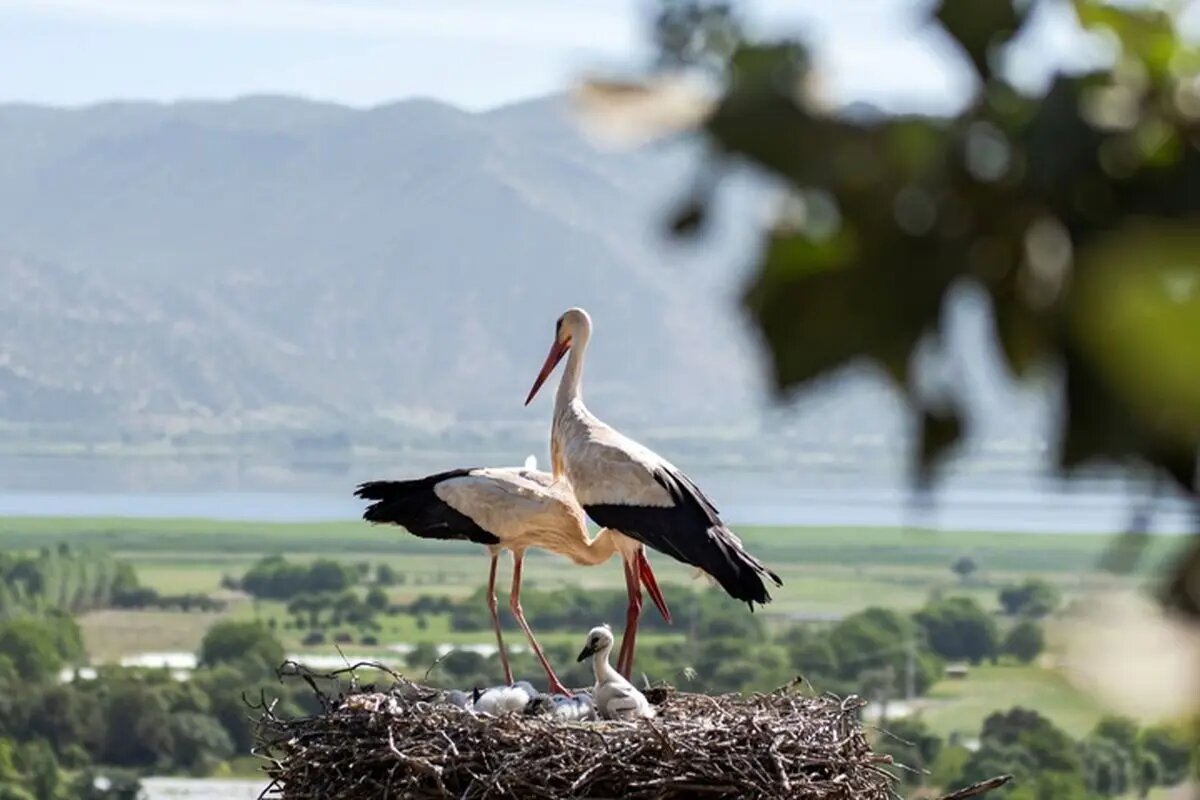Stork habitat in Kordestan province gains national label

TEHRAN – A habitat of migratory storks in Kordestan province has been officially registered on Iran’s national list of natural sites to help protect its serene atmosphere.
The site, located in the village of Darreh Tefi near Marivan, has been assigned the registration number 1236 after undergoing the necessary legal procedures, ILNA reported.
The announcement was made by Deputy Minister of Cultural Heritage, Tourism and Handicrafts Ali Darabi to the province’s governor-general, emphasizing that the site, while respecting private ownership rights, will be under the supervision and protection of the Ministry of Cultural Heritage.
The ministry will be responsible for establishing protective regulations and defining the boundaries of the site. Any alterations or actions that could damage or alter the site's authenticity are strictly prohibited, parts of the announcement reads.
Every year, the lands surrounding Lake Zaribar in Marivan become a temporary home to numerous migratory birds, including storks. These storks are seen as symbols of the vitality of Zaribar and have been long-time neighbors to the villagers in the surrounding areas. The white storks undertake a long migration, flying thousands of kilometers to settle in the warm nests prepared by the residents of Darreh Tefi, about 15 kilometers from Marivan. They stay until late autumn, adding life and beauty to the region.
The return of the storks at the onset of spring is celebrated with festivals and joyous gatherings by the villagers. These celebrations mark the end of winter's cold and the arrival of spring, symbolizing the ongoing life of the lake.
The close relationship and coexistence between the locals and the storks have created a unique opportunity to develop the region's tourism industry, the report said.
Visitors to Marivan often venture to the villages around Lake Zaribar to witness this natural spectacle. The presence of the storks adds to the lake's allure, drawing both domestic and international tourists.
Historically, the village had only one pair of storks nesting on an electric pole. To prevent electrocution, the villagers constructed a handmade nest atop an iron pole, an initiative that gradually increased the number of migratory storks. Inspired by this success, local youths have continued to create suitable nesting sites, enhancing the stork population each year.
Lake Zaribar, situated at an altitude of about 1,285 meters above sea level, is one of the world's most unique freshwater lakes, characterized by its lack of incoming rivers and water supplied by springs at the lake's bottom and melting snow from the surrounding mountains. The lake, which freezes over in winter except at around 60 spring points, is a rare ecological and aquatic ecosystem in Kordestan, surrounded by forested mountains. It hosts a diverse array of fish, birds, and plant species, contributing significantly to local agriculture and recreation.
Tourist facilities around the lake include the Bashmaq border market, handicraft exhibitions, parking areas, the Zarivar four-star hotel, and the Nowruz four-star hotel in Marivan. The region boasts a temperate and cool climate in spring and summer, with cold and dry conditions in fall and winter.
The national registration of the stork habitat in Kordestan province helps preserve its natural heritage, fostering a harmonious relationship between nature and local communities, and enhancing tourism potential in the region.
AM
